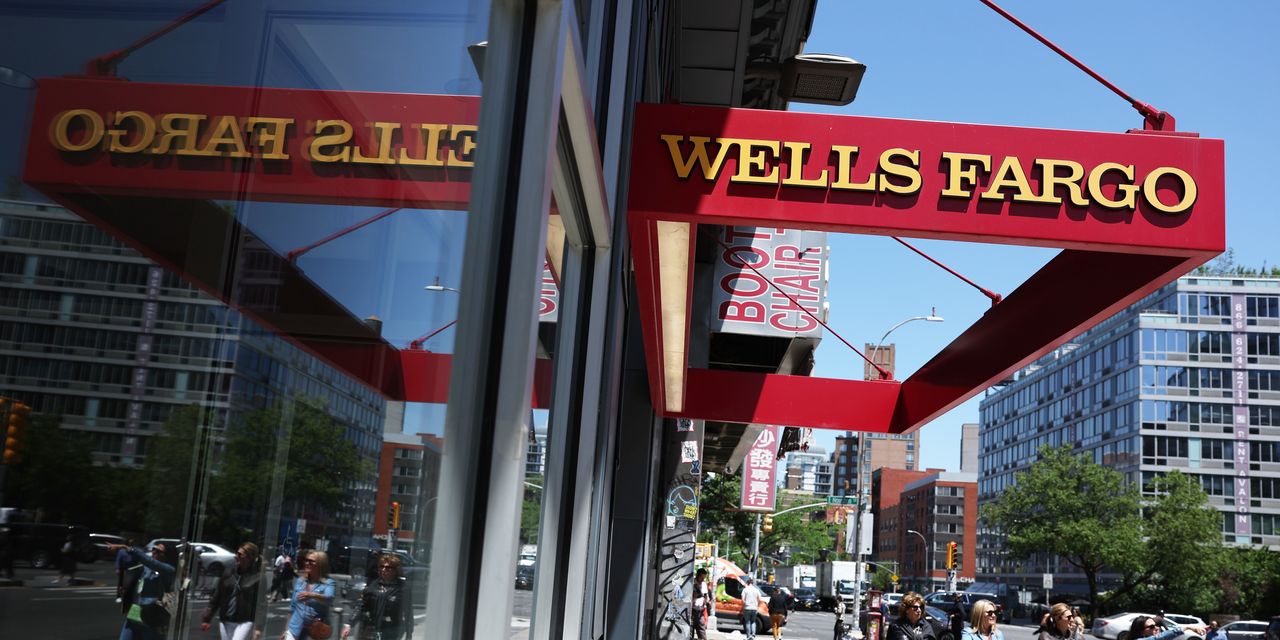For much of the last three years, banks could feel pretty good about their loan books—but as worries of a weakening economy mount, cracks in the health of bank borrowers are starting to show.
Banking giants
Citigroup
(ticker: C) and
Wells Fargo
(WFC) are more susceptible to weakening credit quality, according to a recent analysis by J.P. Morgan analyst Vivek Juneja. His findings show that for Citigroup, the concern is primarily in the bank’s credit card business. As for Wells Fargo, Juneja cites the bank’s exposure to loans for autos, commercial real estate—as well as the San Francisco-based bank’s relatively lower level of reserves for soured loans.
During the pandemic, many household and business clients were feeling flush with cash, thanks to stimulus payments and reduced spending as much of the economy was shut down. Because of this, bank customers had little reason to borrow—and those that had debt had an easy time making payments, meaning the level of defaults were well-below normal levels.
But with the return to normal living coupled with rising inflation, those cash piles are nearly gone.
Even worse, households are starting to feel stretched and are fretting over a possible recession. As such, Juneja notes that 30 to 89-day credit card delinquencies at major banks are close to prepandemic levels and have actually been exceeded at specialty lenders such as
Bread Financial
(BFH),
Capital One
(COF), and
Discover Financial Services
(DFS). Juneja observed similar trends with auto loans, as well.
Similarly, FICO scores, a measure of borrower’s creditworthiness, have been declining as more individuals rely on credit to cover their spending without paying their balances in full monthly. Juneja anticipates that more households will have to resort to revolving debt as the economy worsens.
“As the economy slows and inflation eats into consumer savings, there may be a shift to [revolving credit] by some higher FICO customers also,” he wrote.
Juneja also cites commercial real estate lending as an area of concern; many offices remain at reduced occupancy as more companies embrace hybrid working models. Nonperforming loans, or NPLs, soared by 51% quarter-over-quarter at the banks Juneja covers, as the percentage of nonperforming commercial real estate loans rose by 30 basis points, to 0.69% of total loans.
While all banks are contending with these challenging dynamics, Juneja sees Citigroup and Wells Fargo as being most affected by worsening credit trends.
“Citi Private Label and even Branded cards are seeing faster normalization of FICO scores than bank peers, and Wells Fargo auto loan net charge offs are already above prepandemic levels,” he wrote, adding that on the commercial real estate front, Wells Fargo has more exposure to states that with weaker prospects.
Citigroup and Wells Fargo declined to comment.
But the banks are well-aware of the challenges they face in a tough economy. On a call with analysts in April, Wells Fargo’s chief financial officer Mike Santomassimo said clients are “resilient” but acknowledged that even so, some consumer financial trends are “gradually weakening.” Meanwhile, Citigroup chief financial officer Mark Mason acknowledged that the rate of non-conforming loans is increasing but are still “well below” levels that would typically be seen in a credit downturn.
Write to Carleton English at [email protected]
Read the full article here




